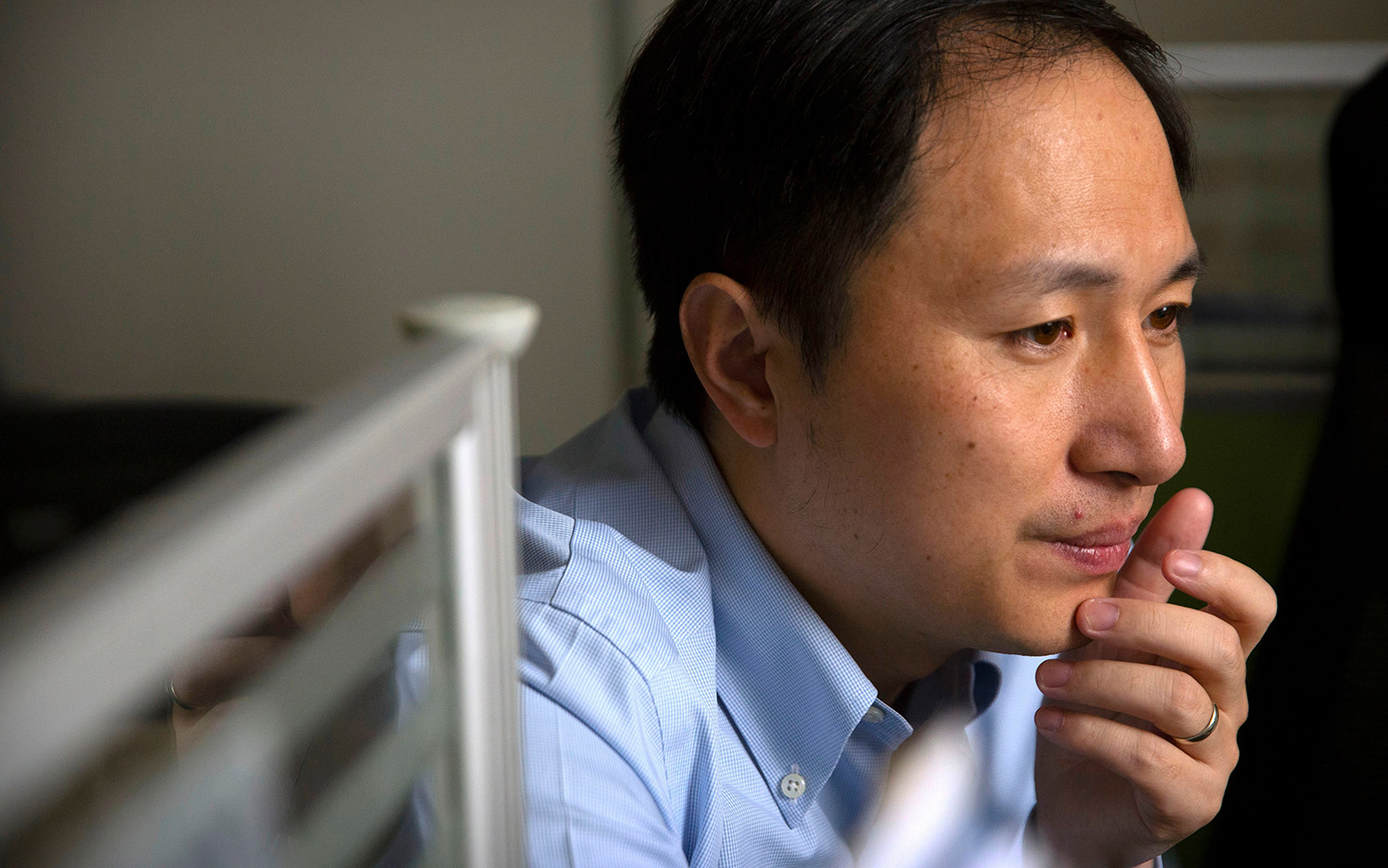Chinese Scientist Who Claimed to Edit Babies' Genes May Be Under House Arrest

A Chinese researcher who ignited controversy in 2018 after claiming to have created the first genetically edited human infants was recently spotted in Shenzhen, China.
This is the first reported sighting of Jiankui He, an associate professor at the Southern University of Science and Technology of China, in weeks, The New York Times reported Dec. 28.
He was photographed while on the fourth-floor balcony of an apartment building — a university guesthouse — and was seen talking to a woman thought to be his wife. The apartment appeared to be monitored by "a dozen unidentified men," according to The Times. [10 Amazing Things Scientists Just Did with CRISPR]
He last appeared in public in November at the Second International Summit on Human Genome Editing in Hong Kong, where he spoke about his research and fielded outraged queries from the global scientific community. Since then, He's whereabouts have been uncertain, though rumors suggested he was under house arrest, The Times reported.
According to He, the babies — twin girls named Lulu and Nana — were genetically modified as embryos with a gene-editing tool called CRISPR-Cas9; He used CRISPR to snip out a gene and thereby render the infants resistant to HIV, he said in a video posted to YouTube on Nov. 25.
However, scientists around the world promptly denounced He's actions as highly irresponsible and potentially harmful to the babies. Genes perform more than one function and act in concert with many other genes, and it is not yet possible to say for sure that excising a single gene can be done safely and with no future consequences for human health, Live Science previously reported.
In fact, the gene that He deleted in the embryos — CCR5 — is known to assist in white blood cell function, Mazhar Adli, a geneticist at the University of Virginia School of Medicine, told Live Science. He may also have failed to adequately inform the babies' parents about potential risks prior to obtaining their consent to the gene editing.
Sign up for the Live Science daily newsletter now
Get the world’s most fascinating discoveries delivered straight to your inbox.
Following the release of the video, He's university quickly denounced his research, issuing a statement the next day stating that it was "deeply shocked" at what He had done and claiming that He had been on unpaid leave from the university since February.
In the weeks after the Hong Kong conference and the launch of an investigation by the Chinese government, He's location was uncertain and university representatives denied that he was being held under house arrest on university grounds, Newsweek reported.
However, He's current location is a university hotel that houses visiting scholars, according to The Times. Four guards were stationed outside the door of He's apartment, but their affiliation is unknown. Neither Shenzhen's police department nor the university responded to The Times' requests for comments, The Times reported.
- Genetics by the Numbers: 10 Tantalizing Tales
- Bionic Humans: Top 10 Technologies
- Unraveling the Human Genome: 6 Molecular Milestones
Original article on Live Science.

Mindy Weisberger is an editor at Scholastic and a former Live Science channel editor and senior writer. She has reported on general science, covering climate change, paleontology, biology and space. Mindy studied film at Columbia University; prior to Live Science she produced, wrote and directed media for the American Museum of Natural History in New York City. Her videos about dinosaurs, astrophysics, biodiversity and evolution appear in museums and science centers worldwide, earning awards such as the CINE Golden Eagle and the Communicator Award of Excellence. Her writing has also appeared in Scientific American, The Washington Post and How It Works Magazine. Her book "Rise of the Zombie Bugs: The Surprising Science of Parasitic Mind Control" will be published in spring 2025 by Johns Hopkins University Press.










